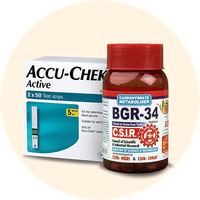Rs.178for 1 bottle(s) (40 gm Spray each)
Available in other variants
Composition FOR Volini
Diclofenac(1.16% w/w),Linseed Oil(3% w/w),Menthol(5% w/w),Methyl Salicylate(10% w/w)food interaction for Volini
alcohol interaction for Volini
pregnancy interaction for Volini
lactation interaction for Volini
medicine interaction for Volini
food
alcohol
pregnancy
lactation
medicine
No interaction found/established
No interaction found/established
Information regarding the use of Volini Spray Spray for Sprain, Muscle and Joint Pain Relief | Quick Action | Long-Lasting Relief | Bone, Joint & Muscle Care during pregnancy is not available. Please consult your doctor.
CONSULT YOUR DOCTOR
Information regarding the use of Volini Spray Spray for Sprain, Muscle and Joint Pain Relief | Quick Action | Long-Lasting Relief | Bone, Joint & Muscle Care during breastfeeding is not available. Please consult your doctor.
CONSULT YOUR DOCTOR
No interaction found/established
SALT INFORMATION FOR Volini
Diclofenac(1.16% w/w)
Uses
Diclofenac is used for fever, pain relief, headache, dental pain, post operative pain, pain during menstruation, arthralgia, muscle pain, osteoarthritis, rheumatoid arthritis, ankylosing spondylitis and gout. It relieves pain in conditions like headache, mild migraine, muscle pain, dental pain, rheumatoid arthritis, ankylosing spondylitis, osteoarthritis, or painful menses.
How it works
Diclofenac is a non-steroidal anti-inflammatory drug (NSAID). It works by blocking the release of certain chemical messengers that cause pain and inflammation (redness and swelling).
Common side effects
Nausea, Headache, Dizziness, Vomiting, Flatulence, Constipation, Diarrhea, Abdominal pain, Dyspepsia, Gastrointestinal bleeding, Gastrointestinal ulcer, Rash, Application site irritation, Injection site pain, Chest pain, Hypersensitivity, Angioneurotic edema, Platelet disorders, Convulsion, Visual disturbance, Ringing in ear, Colitis, Stevens-Johnson syndrome, Myocardial infarction
Linseed Oil(3% w/w)
Uses
Linseed Oil is used for pain relief.
How it works
Not known.
Common side effects
Limited data available
Menthol(5% w/w)
Uses
Menthol is used in the treatment of throat irritation.
How it works
Menthol works by producing a mild anesthetic action causing numbness and a cooling sensation in the area of application.
Common side effects
Methyl Salicylate(10% w/w)
Uses
Methyl Salicylate is used in muscle pain and rheumatic pain.
How it works
Methyl Salicylate is a non-steroidal anti-inflammatory drugs (NSAID) which works by blocking the release of certain chemical messengers that cause pain and inflammation (redness and swelling).
Common side effects
Application site irritation
SUBSTITUTES FOR Volini
5 Substitutes
5 Substitutes
Sorted By
 Rs. 268.95save 20% more per gm of Spray
Rs. 268.95save 20% more per gm of Spray Rs. 164.95pay 6% more per gm of Spray
Rs. 164.95pay 6% more per gm of Spray Rs. 175save 21% more per gm of Spray
Rs. 175save 21% more per gm of Spray Rs. 154save 42% more per gm of Spray
Rs. 154save 42% more per gm of Spray Rs. 70.18save 69% more per gm of Spray
Rs. 70.18save 69% more per gm of Spray
Expert advice FOR Volini
- You have been prescribed Diclofenac to relieve pain and inflammation.
- Take it with food or milk to prevent upset stomach.
- Take it as per the dose and duration prescribed by your doctor. Long term use may lead to serious complications such as stomach bleeding and kidney problems.
- It may cause dizziness, drowsiness or visual disturbances. Use caution while driving or doing anything that requires concentration.
- Avoid consuming alcohol while taking Diclofenac as it can cause excessive drowsiness and increase your risk of stomach problems.
- Inform your doctor if you have a history of heart disease or stroke.
- Your doctor may regularly monitor your kidney function, liver function and levels of blood components, if you are taking this medicine for long-term treatment.
- You have been prescribed Diclofenac to relieve pain and inflammation.
- Take it with food or milk to prevent upset stomach.
- Take it as per the dose and duration prescribed by your doctor. Long term use may lead to serious complications such as stomach bleeding and kidney problems.
- It may cause dizziness, drowsiness or visual disturbances. Use caution while driving or doing anything that requires concentration.
- Avoid consuming alcohol while taking Diclofenac as it can cause excessive drowsiness and increase your risk of stomach problems.
- Inform your doctor if you have a history of heart disease or stroke.
- Your doctor may regularly monitor your kidney function, liver function and levels of blood components, if you are taking this medicine for long-term treatment.
Frequently asked questions FOR Volini
Diclofenac
Q. Is Diclofenac a good painkiller?
Diclofenac is effective in relieving pain and inflammation. It is used for various sorts of pain such as sprains, strains and other injuries. It is also helpful in various types of arthritis, gout, pain and inflammation following surgery.
Q. Is Diclofenac a narcotic?
No, Diclofenac is not a narcotic. It belongs to non-steroidal anti-inflammatory drugs (NSAIDs) group of medicines.
Q. Does Diclofenac get you high?
No, Diclofenac does not get you high. It does not have an abuse potential (drug-seeking behavior) and does not cause physical or psychological dependence. However, if you do not feel well, consult your doctor.
Linseed Oil
Menthol
Methyl Salicylate
Q. Is methyl salicylate the same as aspirin or menthol?
Methyl salicylate is not the same as aspirin or menthol. Methyl salicylate belongs to the same class of medication like aspirin i.e. analgesics or painkiller
Q. How does Methyl Salicylate work?
Methyl Salicylate relieves pain by inhibiting formation of pain causing chemicals in the body
Q. Does it work as a blood thinner or kill bacteria?
It is not a blood thinner and does not kill bacteria















